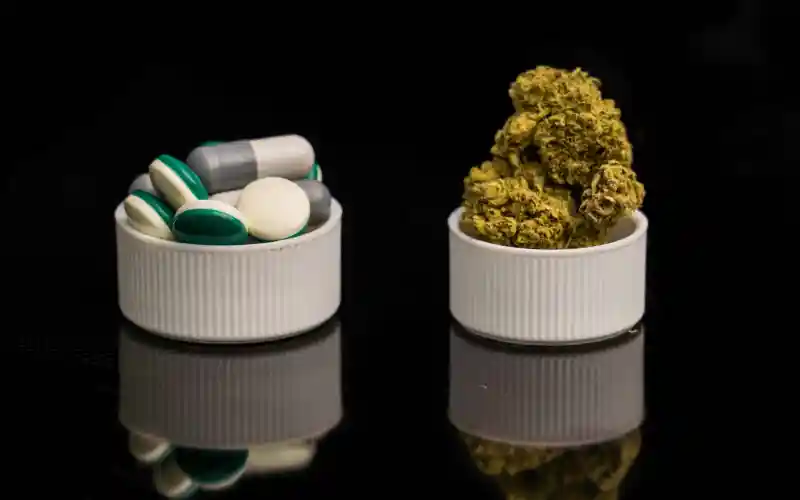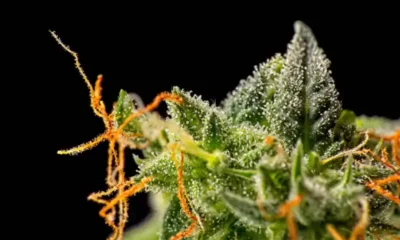Connect with us
Published
5 months agoon

A long-term study on opioid addiction and cannabis use found little to no evidence that using cannabis can help addicts reduce or stop their long-term intake of illicit opioids.
The study, published in the American Journal of Psychiatry, was led by researchers at the University of Sydney and followed over 600 heroin addicts for up to 20 years, monitoring their cannabis and heroin intake at regular intervals to try and associate a relationship, positive or negative, between the two.
“The Australian Treatment Outcome Study (ATOS) recruited 615 people with heroin dependence in 2001 and 2002 and reinterviewed them at 3, 12, 24, and 36 months as well as 11 and 18–20 years after baseline,” the study said. “Heroin and cannabis use were assessed at each time point using the Opiate Treatment Index. A random-intercept cross-lagged panel model analysis was conducted to identify within-person relationships between cannabis use and heroin use at subsequent follow-ups.”
The results of the study did not find cannabis to be a statistically significant factor in reducing or ceasing a person’s opioid use, despite anecdotal evidence from addicts who claim the plant helps them use less opioids or stop using them altogether. The lead author of the study credited these misconceptions to the way previous studies were conducted, in that they only followed addicts for a short time and did not examine long-term impacts.
“Our investigation shows that cannabis use remains common among this population, but it may not be an effective long term strategy for reducing opioid use ,” says lead author Dr. Jack Wilson, from The Matilda Centre for Research in Mental Health and Substance Use, at the University of Sydney.
“There are claims that cannabis may help decrease opioid use or help people with opioid use disorders keep up with treatment. But it’s crucial to note those studies examine short-term impact, and focus on treatment of chronic pain and pain management, rather than levels of opioid use in other contexts.”
The study actually found data that indicated cannabis use may lead to further opioid use, particularly around the two-three year period of the study.
“After accounting for a range of demographic variables, other substance use, and mental and physical health measures, an increase in cannabis use 24 months after baseline was significantly associated with an increase in heroin use at 36 months,” the study said.
That said, the study did not go so far as to make a claim that cannabis use may increase heroin use, it merely mentioned the data. Rather, the results section of the study indicated that there simply was not a significant enough relationship in the data to draw any conclusive conclusions, if you will.
“Although there was some evidence of a significant relationship between cannabis and heroin use at earlier follow-ups, this was sparse and inconsistent across time points. Overall, there was insufficient evidence to suggest a unidirectional or bidirectional relationship between the use of these substances,” the study said.
Dr. Wilson indicated in a press release from the University of Sydney that based on previous available research there does not appear to be a one-size-fits-all solution to opiate addiction, a sentiment which was further reinforced by the results of this long-term study.
“Opioid use disorders are complex and unlikely to be resolved by a single treatment,” Dr Wilson said. “The best way to support them is evidence-based holistic approaches that look at the bigger picture, and include physical, psychological, and pharmacotherapy therapies.”
Previous studies have found somewhat contradictory results compared to this one but as aforementioned, none of those studies were conducted for anywhere near as long. For instance, a study conducted through the University of Connecticut found evidence that cannabis users required less opioids while recovering from a particular major neck surgery. However, the study lasted less than a year and did include data on any possible adverse outcomes that may have occurred after the study, context which is important due to the nature of addicts to sometimes stumble into opiate addiction after having them prescribed for pain.
Additionally, a 2022 study published in Substance Use and Misuse found that around four out of five patients who were prescribed opioids self-reported in a survey that they were able to reduce or cease their opiate intake using medical cannabis. However, this study was based on one survey and did not follow anyone long-term. That said, there have been several other studies that found similar, positive results. In general, the issue of cannabis as a potential replacement for opioids appears to be a mixed bag until more research is conducted.


Despite City Efforts, Hemp Shops Posing as Dispensaries Prevail in Las Vegas


Cannabis Community, Investors React to DEA Decision To Reschedule


Georgia Governor Signs Bill Establishing Licensing Requirements To Grow Hemp


Study: Psilocybin Enhances Meditation


Ohio GOP Lawmakers Debate Adult-Use MJ Priorities, Eye June for Regulation Approval


Taylor Swift Puts Narcotics Into All of Her Songs on ‘The Tortured Poets Department’
